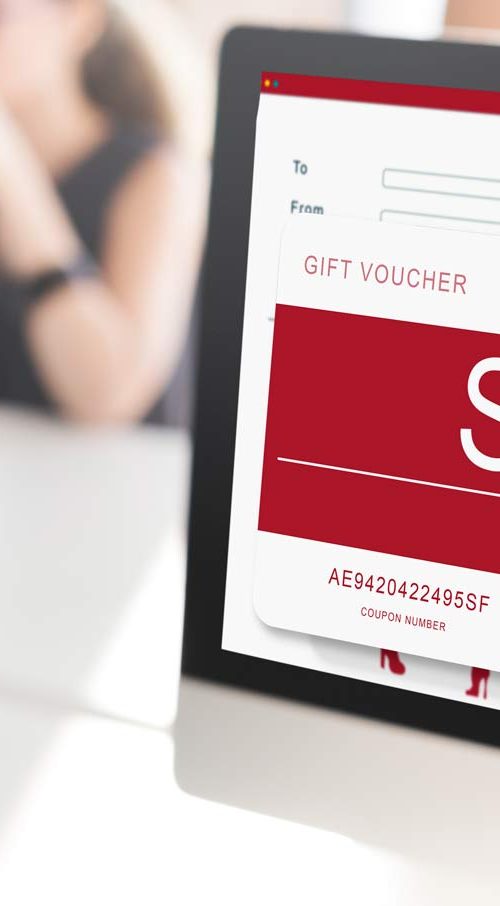Ultimate Business Owner’s Guide to Navigating Debt Consolidation Loans
For many business owners, managing an array of debts—such as credit card balances, overdrafts, and conventional loans—can feel overwhelming. As the burden of debt increases, so does the financial pressure, often requiring more resources to efficiently handle multiple payments. Debt consolidation loans tailored for self-employed individuals provide a strategic solution, enabling entrepreneurs to consolidate all their debts into one loan. This approach not only simplifies financial management by reducing obligations to a single monthly payment, interest rate, and lender but also significantly lessens the administrative load and enhances overall financial clarity.
According to a 2021 report, UK businesses might collectively be grappling with between £97 billion and £107 billion in unsustainable debt, as per a study by TheCityUK highlighted in the Sunday Times. This alarming figure emphasizes the urgent need for business owners to explore effective debt management strategies that empower them to handle their financial responsibilities more adeptly.
In-Depth Exploration of How Business Debt Consolidation Loans Function
A business debt consolidation loan represents a strategic financial approach that allows a company to secure new funding aimed at clearing existing debts. This process effectively merges several debts into a single, manageable loan, simplifying the repayment journey for business owners. By opting for debt consolidation, businesses can alleviate the anxiety associated with juggling multiple payments, enabling them to focus on growth and effective management of their operations.
When seeking debt consolidation loans, it’s essential to identify lenders offering competitive interest rates that are lower than the combined rates of your current debts. This ensures the consolidation genuinely enhances your financial health and supports long-term sustainability.
Understanding the Challenges of Repaying Government-Backed Loans
A significant portion of the estimated £38 billion in business debt originates from government-backed COVID-19 loan initiatives. Over 910,000 businesses have utilized these financial schemes; however, many may encounter substantial obstacles when it comes to repayment. This situation poses serious challenges not only for the affected businesses but also impacts broader economic recovery efforts across the nation.
In response to these challenges, British banks are being urged to enhance their preparations for effective debt recovery strategies while improving staff training to manage debt disputes more effectively. On an individual level, business owners must critically evaluate their options for managing multiple debts to ensure their financial stability and the viability of their operations.
Assessing the Practicality of Business Debt Consolidation for Your Organization
In straightforward terms, consolidating business debt is indeed a feasible option.
Operating a business in today’s unpredictable economic landscape presents unique challenges. For small to medium-sized enterprises, maintaining a healthy cash flow is essential, particularly for those engaged in business-to-business transactions or industries influenced by seasonal fluctuations.
Unexpected expenses can emerge, whether from investing in new equipment or facing sudden price hikes from suppliers. Without sufficient cash reserves, businesses can quickly find themselves in a precarious financial situation, complicating their overall financial landscape.
Often, when faced with financial troubles, businesses turn to loans as a primary solution. However, during economic downturns, some may resort to taking on multiple loans, leading to a precarious scenario known as the debt spiral.
The debt spiral occurs when businesses struggle to meet repayment obligations on numerous debts, resulting in mounting interest and escalating debt levels. Managing daily operations is already a formidable task, and when compounded by the pressures of multiple debts, it can quickly become overwhelming. This is where business debt consolidation loans can provide significant relief and support.
Comprehensive Overview of Business Debt Consolidation Strategies
When unforeseen economic challenges arise, UK businesses may swiftly accumulate considerable debt. In such circumstances, a business debt consolidation loan emerges as a viable solution.
There are several formal and informal methods available to assist businesses in effectively addressing their debt issues.
The first step often involves consulting with a reputable financial expert who can provide valuable insights into effective debt consolidation strategies tailored to the unique needs of the business.
One option is a Company Voluntary Arrangement (CVA), specifically designed for limited companies facing debt challenges. This process resembles an Individual Voluntary Arrangement (IVA) utilized in personal insolvency cases.
Through a CVA, businesses can negotiate terms with creditors, potentially leading to a portion of their debts being forgiven, thus allowing for extended repayment periods. This arrangement grants essential breathing space for businesses to recover and re-establish their financial stability.
While accepting a reduced payoff is not mandatory, it is a consideration worth exploring, as creditors may favor this approach to ensure they receive more over time rather than risk liquidation.
An insolvency practitioner oversees the CVA process, facilitating discussions between the business and its creditors while allowing existing management to continue operating the business.
Diverse Strategies for Effective Business Debt Consolidation
Business debt consolidation presents an opportunity to merge various types of business loans, overdrafts, and creditor obligations into a single, cohesive loan agreement. This method optimizes cash flow by consolidating payments into one manageable monthly installment, ultimately reducing administrative time and costs while significantly enhancing the efficiency of the repayment process.
Streamlining Business Credit Card Debt through Consolidation
For those managing multiple business credit cards, a practical solution exists to consolidate these debts into a more organized and manageable framework. A business debt consolidation loan provides a unique opportunity to secure a more favorable lending option, potentially lowering monthly payments and freeing up vital capital for operational needs.
Enhancing Cash Flow with Business Cash Advance Debt Consolidation
In certain situations, businesses require immediate access to cash to maintain operational health. Often, capital is tied up in existing loans and overdrafts, making it challenging to tap into liquid assets. A business debt consolidation loan can streamline this process by merging various debts into a single payment with a lower monthly obligation, thereby improving liquidity for essential business functions.
Overcoming Bad Credit Challenges in Business Debt Consolidation
As businesses evolve, they may accumulate various loans and financing options, leading to complex repayment structures. This complexity can be heightened by a poor credit score, making it difficult to secure additional financing. However, a business debt consolidation loan offers a pathway to simplify debts into one manageable loan with a single monthly payment, thereby enhancing overall financial clarity.
Small Business Debt Consolidation Loans: Essential Financial Support
Small businesses are vital to the economy but often find it challenging to remain viable amid minor fluctuations in demand or foot traffic. For these enterprises, managing multiple loans without dedicated financial personnel can be particularly daunting. A small business debt consolidation loan consolidates all outstanding debts into a single loan, simplifying payment management and alleviating financial stress.
Analyzing the Advantages and Disadvantages of Business Debt Consolidation
Business consolidation loans come with a distinctive set of advantages and disadvantages; however, many challenges can be effectively addressed and mitigated.
Advantages of Business Debt Consolidation Loans
Achieving Strategic Savings Through Debt Refinancing
By choosing a refinancing loan with a larger principal and an extended repayment term, your business can secure a greater overall amount while maintaining similar monthly payments. If you qualify for a lower-interest refinancing loan compared to your existing debts, you will incur less interest over time, ultimately saving your business money. Paying off a mix of current loans or replacing an older loan with a new, lower-interest option can also facilitate improved cash flow each month.
Ensuring Operational Continuity Amid Financial Struggles
Effective debt consolidation can enhance cash flow and support ongoing business operations while ensuring profitability. By consolidating debts with a single lender, businesses can redirect funds typically expended on high-interest payments, allowing for more strategic investments in operations and growth initiatives.
Simplifying Repayment Processes for Busy Entrepreneurs
For business owners focused on their operations, managing multiple repayments can feel overwhelming. A consolidation loan shifts the focus to a single monthly payment, significantly reducing administrative burdens and allowing owners to concentrate fully on effectively running their businesses.
Boosting Cash Flow through Efficient Debt Management
With business debt consolidation loans, you’re likely to spend less on interest each month, enabling you to retain more cash for essential purchases and investments that drive growth and sustainability.
Improving Your Credit Score through Responsible Financial Practices
By effectively managing your financial obligations through a single monthly loan payment, you can build a stronger repayment history. This positive track record enhances your appeal to lenders and suppliers, increasing your chances of securing future financing and credit opportunities.
Possible Drawbacks of Business Debt Consolidation
Long-Term Interest Rate Implications to Consider
When consolidating business debt, payments are based on the initial amount owed, which includes both principal and interest. Even if you secure a lower interest rate through a business debt consolidation loan, you might end up paying more in interest over the loan’s term due to extended repayment periods.
Acknowledging the Temporary Nature of Debt Solutions
While consolidating debt can relieve monthly payment burdens, it is crucial to address the underlying financial issues within your business. Implementing a long-term strategy may be necessary to achieve lasting financial stability and sustainability.
Integrating Personal and Business Debt: Assessing Available Options
If you are a freelancer or self-employed individual operating without a limited company, your debts are classified as personal, allowing for consolidation. However, if your business operates as a limited company, those debts are legally separate from your personal debts. Consulting with a financial advisor can provide insights to assess your situation and identify viable options for debt management.
Consider the scenario of a plumber working as a sole trader who undertakes a large project that spans over a month, with payment delayed until 60 days post-completion.
This project may prevent the plumber from accepting additional jobs, creating a cash flow challenge. During this period, necessary supplies for the job are purchased on credit, and unexpected vehicle repairs arise, further straining finances.
Consequently, the plumber finds themselves juggling debts from both the garage and the builder’s merchant. This example illustrates how personal and business debts can become intertwined, underscoring the importance of self-employed debt consolidation loans to avert financial distress.
Understanding Self-Employed Debt Consolidation Loan Mechanisms
For individuals managing a mix of personal and business debts, a self-employed debt consolidation loan can provide substantial relief. This type of loan enables you to pay off creditors and streamline repayments into a single monthly obligation at a lower interest rate than the cumulative total of your previous debts. This strategy can help restore financial balance, allowing you to focus on activities that generate income rather than administrative tasks.
When applying for debt consolidation loans, ensure that your monthly payment is lower than what you currently pay to your existing creditors; otherwise, the consolidation may not yield the intended benefits.
Proven Techniques for Successful Business Debt Consolidation
To effectively consolidate business debt, whether from credit cards, overdrafts, or loans, businesses should seek a dedicated business consolidation loan. This loan consolidates all outstanding debts into one manageable obligation, simplifying repayment into a single monthly payment with one interest rate and one lender, ultimately enhancing financial clarity.
Leading Business Debt Consolidation Companies Worth Considering
Modern business debt consolidation companies significantly differ from traditional corporate banks. While some banks offer consolidation loans, there are also specialized companies that cater to various types of businesses, including micro-businesses and SMEs. These lenders often prioritize ethical lending practices and customize loans to fit specific business circumstances.
Thorough Evaluation of Business Debt Consolidation Loan Rates
When selecting a business debt consolidation loan, comparing various options is vital, as interest rates can fluctuate considerably. Rates may range from just over 5% to as high as 36%. By shopping around, you can discover a loan that aligns with your needs; even if some options have elevated rates, they might still provide the necessary financial support you require promptly.
Assessing the Impact of Business Debt Consolidation on Your Organization
In instances where your business debt stems from isolated incidents, a CVA might represent the most effective route to achieving debt relief.
Company directors can avoid liquidation and bankruptcy by adhering to the terms established in the business debt consolidation arrangement.
By utilizing this strategy, a business can aim for debt freedom within a five-year period. During the CVA timeframe, interest can be frozen, and additional charges may be halted, facilitating the repayment of debts. In some cases, up to 75% of a business’s unsecured debt can be eliminated through a CVA.
A Creditor Voluntary Liquidation (CVL) presents an alternative approach to business debt consolidation that many financial counseling agencies may recommend. In this process, parties legally entitled to company assets can identify and distribute these assets during liquidation.
During liquidation, the company is dissolved, and the CVL represents a resolution agreed upon by the shareholders. This stage is crucial; at this point, the company may be too far gone to consider a debt consolidation loan, indicating insolvency and an inability to fully repay debts.
The economic recession has, regrettably, forced numerous UK businesses into CVL scenarios, a situation that no shareholder or director desires to confront. A liquidator is appointed to oversee the CVL business debt consolidation process.
The liquidator will convene a meeting with creditors to scrutinize the insolvency claims made by the directors, with creditors formally appointing the liquidator. The liquidator’s responsibilities in the business debt consolidation context include converting assets into cash, investigating the conduct of company directors, assessing the company’s debts, and facilitating payments to creditors.
Discover Additional Resources: Hot Topics Captivating Visitors
 Buy Now Pay Later Schemes Currently Under Scrutiny
Buy Now Pay Later Schemes Currently Under Scrutiny

